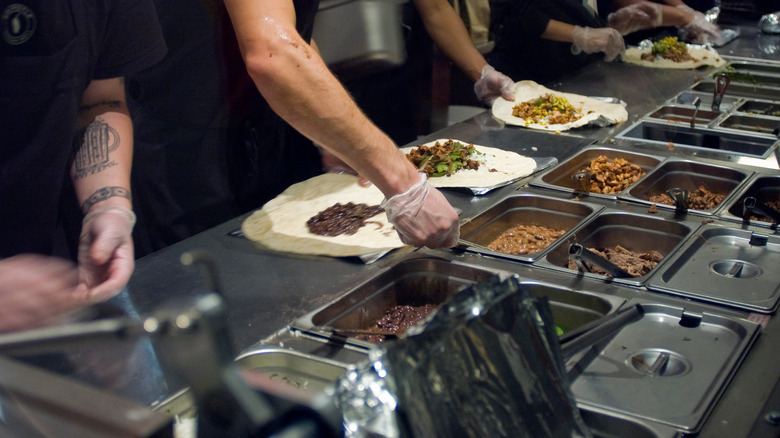Why Chipotle Has To Pay $20 Million In A New Settlement
New York City announced a settlement with Chipotle on August 9 following a lawsuit accusing the fast food company of violating the city's Fair Workweek law. According to Restaurant Dive, the Mexican fast-casual chain will pay $20 million in compensation to its New York employees as well as $1 million in fines to the city.
The New York City Department of Consumer and Worker Protection explains that the Fair Workweek law entitles fast food workers at large chains to certain rights including a regular schedule, advance notice of a schedule change, the right to refuse a last minute schedule change or extra hours, and extra pay for an altered schedule or a back-to-back closing and opening shifts.
The Hill reports that the city's investigation found that Chipotle had failed to give employees advanced notice of their schedules, required extra hours without getting their consent ahead of time, neglected to pay extra for altered schedules, and refused to let employees use their PTO and sick days.
A series of controversies
NYC's settlement with Chipotle concludes an investigation which began after the initial complaint was filed in 2021, according to Restaurant Dive. The funds will be divided amongst the company's estimated 13,000 current and former New York City-based employees, amounting to about $50 per person per week worked between November 2017, when the law first took effect, and April 2022. Although the city celebrated the settlement as a win for workers, the settlement is significantly less than the DCWP's originally requested $150 million.
Chipotle's chief restaurant officer Scott Boatwright said he hopes the settlement will lead to "greater cooperation" between New York and the chain and that the brand has "implemented a number of compliance initiatives" to prevent further violations in the future.
New York's accusations against the chain are part of an ongoing litany of criticisms of the brand, which has raised prices repeatedly in the last year and plans to do so again (due to what they blame on inflation and labor costs) — all while reporting increased profit margins, a move CNBC claims has driven away lower-income customers. Additionally, the chain is embroiled in an ongoing scandal following the closure of a Maine store where employees attempted to unionize. After filing a petition to unionize in June, Maine's NBC News Center reports that the shop was closed and all its employees were laid off in July. Recently, those former employees have complained that the chain has blacklisted their email addresses and refuses to allow them to apply to other stores.

